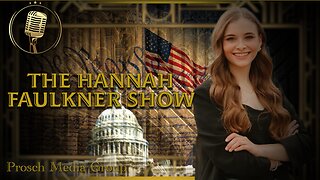Premium Only Content

The King’s Mistress or the Peasant’s Wife: A Deep Exploration of Power, Status, and Morality
The choice between being the king’s mistress or the peasant’s wife is more than a simple preference—it is a gateway to understanding human nature, morality, social dynamics, and the complexities of power. While the scenario may seem provocative on the surface, it reveals deeper layers of psychology, philosophy, sociology, economics, and gender dynamics. Each choice reflects different values and motivations, offering insights into how individuals navigate power, morality, and social status in a world shaped by both personal desires and external pressures.
In this expanded and refined analysis, we will explore the nuanced implications of this hypothetical scenario through multiple lenses, seeking a holistic understanding of the human condition that transcends conventional interpretations.
1. Power Dynamics: The Evolutionary and Social Appeal of Influence
Power is one of the fundamental drivers of human behavior. In this scenario, the king’s mistress symbolizes access to power and influence, while the peasant’s wife represents traditional stability but within a lower socioeconomic class. Understanding the allure of power requires delving into both evolutionary biology and sociocultural hierarchies.
1.1. Evolutionary Strategy: Security and Resource Access
From an evolutionary standpoint, humans have long been drawn to partners who can provide security, protection, and resources. Throughout history, those with power—whether kings, leaders, or influential figures—were better equipped to ensure the survival and prosperity of their partners and offspring. The king’s mistress, while facing moral scrutiny, would likely enjoy a life of material security and social privilege.
In this context, the choice to be the king’s mistress may not be driven by a shallow desire for luxury but by survival instincts deeply embedded in human behavior. In environments where survival and social standing were precarious, proximity to power offered both security and legacy.
1.2. Power as Agency and Influence
Power is not just about material wealth; it is also about agency—the ability to influence one’s environment and future. Historically, women have often sought positions that granted them indirect access to influence. The role of the mistress, despite its moral complexities, has frequently allowed women to exert behind-the-scenes control, shaping decisions at court or even influencing matters of state.
This access to power and agency may offer a compelling alternative to the traditional role of the peasant’s wife, whose influence would be largely confined to the domestic sphere. The trade-off here is between autonomy within a system of power versus stability within a system of limitation.
2. Morality and Social Judgment: The Conflict Between Personal Gain and Ethical Norms
Morality is a key factor in this decision. While the king’s mistress may enjoy wealth and influence, she risks social shame and moral condemnation. On the other hand, the peasant’s wife might embody moral virtue, yet face the hardships of a modest, labor-intensive life.
2.1. Social Shame and Group Morality
Throughout history, social norms have shaped how individuals navigate their roles in society. The position of a mistress, while providing access to power, is often fraught with moral stigma. According to Erving Goffman’s concept of “stigma,” individuals who violate social norms are subject to judgment and exclusion, particularly in tightly regulated social groups. In this case, the king’s mistress may be perceived as violating the sanctity of marriage or traditional morality.
However, as the participants in the scenario noted, social shame may not be enough to deter those who are drawn to the material and social benefits of power. This suggests that in modern societies, individual autonomy and personal fulfillment often outweigh collective moral standards, reflecting a shift toward moral relativism—where values and ethics are increasingly seen as subjective.
2.2. Philosophical Perspectives: Moral Relativism vs. Universal Ethics
From a philosophical perspective, the choice between the king’s mistress and the peasant’s wife reflects the tension between moral relativism and universal ethical principles. Jean-Paul Sartre’s existentialism posits that individuals are responsible for creating their own values, regardless of societal expectations. In this light, the king’s mistress could be seen as exercising personal freedom and agency, constructing her own ethical framework around power and survival.
Conversely, Immanuel Kant’s deontological ethics would argue that choosing to be a mistress violates universal principles of honesty, fidelity, and respect for others, regardless of personal gain. According to Kant, moral duty must supersede individual desires, and thus, the peasant’s wife—despite her lower status—might be seen as the ethically superior choice.
3. Socioeconomic Realities: Class Mobility and Economic Survival
In any society, class and wealth are defining factors that shape opportunities, choices, and outcomes. The king’s mistress and the peasant’s wife occupy distinct positions within this socioeconomic hierarchy, each with its own implications for life quality, security, and social mobility.
3.1. Class and Economic Survival
The life of a peasant is typically associated with poverty, hard labor, and limited access to resources. In contrast, the king’s mistress, though morally compromised in the eyes of society, would have access to luxury, influence, and security. In this light, the decision to align with power may reflect the harsh realities of economic survival in a class-stratified society.
For many, the opportunity to escape the lower rungs of the social ladder by aligning with someone powerful could be seen as a rational choice, despite the moral implications. The choice to be the king’s mistress may represent an attempt to break free from the oppressive constraints of poverty, gaining not only material wealth but also a degree of upward mobility.
3.2. Power, Wealth, and Class Mobility
From a Marxist perspective, this decision could be seen as a reflection of the broader class struggle: those in lower socioeconomic positions may seek to associate with powerful figures to improve their circumstances, even if it means compromising on traditional moral values. In a capitalist system that privileges wealth and status, the choice to be the king’s mistress could be seen as an act of class mobility—a way to navigate an unequal social structure.
4. Gender Dynamics and Historical Context: The Mistress as an Archetype of Influence
The role of the mistress is deeply intertwined with gender dynamics and historical power structures. While the king’s mistress has often been morally vilified, she has also been a figure of strategic power, navigating complex relationships in male-dominated societies.
4.1. Historical Mistresses and Influence
In many historical contexts, mistresses wielded considerable power, often acting as advisors or even political influencers behind the scenes. Figures like Madame de Pompadour or Diane de Poitiers are examples of women who used their proximity to royalty not only to gain personal advantages but to shape political and cultural decisions in their countries.
In this sense, the king’s mistress is not simply a passive recipient of wealth and favor—she can be seen as an active power broker, navigating complex social and political landscapes to achieve influence. The role of the mistress, while morally ambiguous, has often offered women a form of soft power that transcends the limitations of traditional gender roles.
4.2. Gendered Morality and Social Expectations
The double standard inherent in gendered morality has long shaped how mistresses and wives are perceived. While men in power often escaped moral judgment for their relationships outside of marriage, women who assumed roles outside traditional marriage were often stigmatized. This gendered moral framework reflects broader societal anxieties about women’s autonomy and their ability to engage in power dynamics outside of socially sanctioned roles.
The peasant’s wife, in contrast, embodies the idealized feminine virtues of modesty, loyalty, and domestic responsibility. Yet this role, while morally lauded, also comes with limitations on personal freedom, influence, and social mobility. The contrast between the mistress and the wife reflects the broader tension in many societies between moral virtue and pragmatic ambition.
Conclusion: A Reflection on Power, Morality, and Human Choice
The choice between being the king’s mistress or the peasant’s wife is not just a reflection of personal preferences—it is a microcosm of the broader dynamics of power, status, morality, and survival. This exploration reveals how individuals navigate complex social structures, balancing personal desires with ethical considerations, while also reflecting on the impact of class, gender, and historical context on human behavior.
At its core, this scenario forces us to confront the tensions between individual autonomy and collective morality, between ambition and virtue, and between power and integrity. Whether viewed through the lenses of psychology, philosophy, sociology, or history, the decision to embrace power despite moral ambiguity speaks to the universal human struggle to reconcile self-interest with societal expectations.
Ultimately, this question is not just about choosing between two roles—it is about understanding the human condition in all its complexity, where every choice carries with it the weight of personal ambition, moral values, and social consequences.
-
 DVR
DVR
Redacted News
3 hours agoBREAKING! Putin just SHOCKED the world, launches nuclear capable warheads "NATO can't stop it"
87.9K154 -
 55:37
55:37
Candace Show Podcast
2 hours agoMatt Gaetz Out, Jussie Smollett Walks Free! | Candace Ep 108
57.4K124 -
 4:29:05
4:29:05
Tate Speech by Andrew Tate
10 hours agoEMERGENCY MEETING EPISODE 92 - IN THE TRENCHES
674K1K -
 1:01:23
1:01:23
In The Litter Box w/ Jewels & Catturd
22 hours agoThe Trump Effect | In the Litter Box w/ Jewels & Catturd – Ep. 696 – 11/21/2024
45.7K22 -
 20:53
20:53
SLS - Street League Skateboarding
2 days agoGold Medals, World Class Food, Night life & more - Get Lost: Tokyo
43.6K4 -
 47:13
47:13
PMG
18 hours ago $0.35 earned"Hannah Faulkner and Doug Billings | WHY LIBERALS LOST THE ELECTION"
20.3K -
 59:01
59:01
The Liberty Lobbyist
4 hours ago"We Only Have NOW To Make a Difference"
22.3K2 -
 4:16:41
4:16:41
CatboyKami
6 hours agoStalker 2 Blind playthrough pt1
22.3K2 -
 1:06:27
1:06:27
Russell Brand
6 hours agoNeil Oliver on the Rise of Independent Media, Cultural Awakening & Fighting Centralized Power –SF498
193K261 -
 1:39:14
1:39:14
vivafrei
6 hours agoSoros Karma in New York! Tammy Duckwarth Spreads LIES About Tulsi Gabbard! Pennsylvania FLIPS & MORE
92.5K70